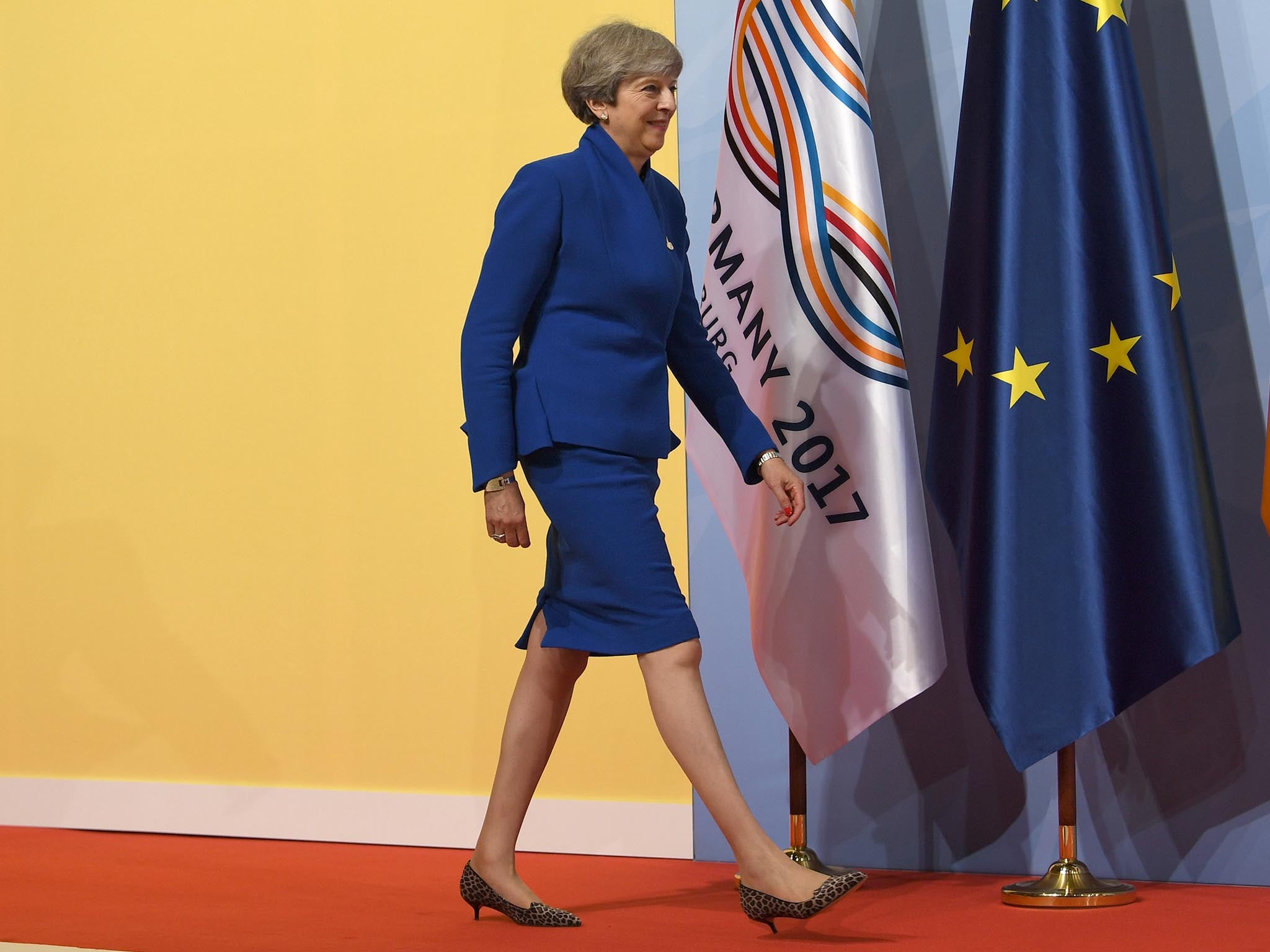Next round of Brexit talks delayed for a week in attempt to end UK-EU stalement jeopardising an agreement
Move follows suggestions that Theresa May is preparing to finally flesh out her exit strategy

Your support helps us to tell the story
From reproductive rights to climate change to Big Tech, The Independent is on the ground when the story is developing. Whether it's investigating the financials of Elon Musk's pro-Trump PAC or producing our latest documentary, 'The A Word', which shines a light on the American women fighting for reproductive rights, we know how important it is to parse out the facts from the messaging.
At such a critical moment in US history, we need reporters on the ground. Your donation allows us to keep sending journalists to speak to both sides of the story.
The Independent is trusted by Americans across the entire political spectrum. And unlike many other quality news outlets, we choose not to lock Americans out of our reporting and analysis with paywalls. We believe quality journalism should be available to everyone, paid for by those who can afford it.
Your support makes all the difference.The next round of the Brexit talks will be delayed by one week in an attempt to end the stalemate jeopardising an agreement, The Independent has learned.
The negotiations will not resume until about 25 September. British and EU officials had been due to meet in Brussels next Monday.
The delay follows suggestions that Theresa May is planning a major public speech towards the end of next week that will finally flesh out her exit strategy.
Guy Verhofstadt, the European Parliament’s Brexit negotiator, first revealed the Prime Minister was planning an “important intervention” that might require the talks to be rescheduled.
It is thought Ms May is preparing to try to reassure business and Brussels by setting out that any transitional agreement must be “as close as possible” to current relations with the EU.
Downing Street has been considering several European venues for the speech and is said to have pencilled in September 22 as a possible date.
However – illustrating the tightrope Ms May is walking – she will be under pressure to deliver a more hardline speech to the Conservative conference in the first week of October.
No 10 insisted no decision had been taken about the date of the next round of talks and the European Commission declined to comment on the speculation.
However, The Independent understands an announcement is looming that 25 September will now be the date for the fourth round.
In Brussels, asked if the negotiations would be postponed, Michel Barnier, the EU’s chief negotiator, told a reporter: “It's possible.”
The delay – apparently at Britain’s request – comes after EU leaders poured cold water on the idea of the talks turning to future trade next month, as the Government wants.
They pinned the blame on Britain’s failure to make the necessary “sufficient progress” on a financial settlement for Brexit, on citizens’ rights and on the border in Ireland.
The leak of Home Office plans for the UK to limit the free movement of people from day one of Brexit appeared to throw fresh obstacles in the way of a transitional deal, to cushion the impact of Brexit.
Meanwhile, Mr Barnier rejected the UK’s suggestions for a light-touch Irish border after withdrawal, suggesting they presented a threat to the integrity of the single market.
In Brussels, there is also growing anger at Theresa May’s decision to reject an invitation to address the European Parliament, to try to convince MEPs of her vision for future relations.
Crucially, the European Parliament has the right to veto any agreement between the EU and the UK.
Over the summer, the Cabinet apparently agreed to some form of transition to prevent the damaging “cliff edge” of leaving the EU without a trade deal in March 2019.
However, the Prime Minister has failed to spell out her wishes for an interim deal – and Mr Barnier protested that the issue had barely been raised in the formal talks.
Brussels will hope her speech will break with the uncompromising stance in her Lancaster House speech in January, at which she first threatened Britain would walk away with no deal if necessary.
Join our commenting forum
Join thought-provoking conversations, follow other Independent readers and see their replies
Comments